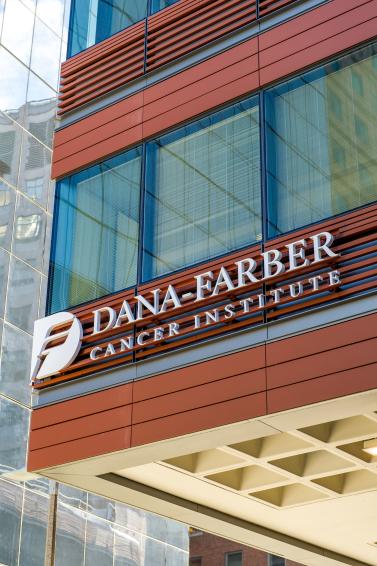Public awareness of cancer drug shortages is lacking, but most would want to know about drug substitutions if they were patients, study finds
Relatively few Americans are aware of ongoing shortages of many drugs used in cancer treatment, but they widely agree that patients with cancer should be informed about any substitute drugs used in their care, a nationwide survey conducted by investigators at Dana-Farber Cancer Institute and Brigham and Women's Hospital shows.
Concerns about the perceived shortcomings of substitute drugs were so sharp among respondents that most said that, if they were cancer patients, they would transfer their care rather than receive substitutes that had major differences in efficacy or side effects. The results of the survey are reported in a paper published online today by the journal Cancer.
"Our findings suggest that the general public is largely unaware of shortages of drugs used in cancer care – chemotherapy agents as well as drugs used in supportive care, which can be important to relieve side effects and improve quality of life," said study lead author Zachary Frosch, MD, of Dana-Farber and Brigham and Women's. "It's clear that when people learn about the shortages, however, they want to have discussions around how the shortages may affect cancer care."
Such discussions, along with heightened public attention to the shortages and their impact on patients, could raise awareness of this issue and increase pressure within the healthcare system and pharmaceutical industry to take a more proactive and systematic approach to managing, and ideally avoiding, these shortages, Frosch remarked.
Shortages of cancer-related medications have been a persistent problem in the United States. In July 2017, the American Society of Health-System Pharmacists reported shortages of 134 drugs, including 12 chemotherapy agents. (The Food and Drug Administration defines a shortage as a condition where the total supply of a drug is inadequate to meet demand at the patient level.) The problem is particularly prevalent for generic drugs, which generally offer less of a financial incentive for manufacturers to produce, Frosch said. Many factors have contributed to the problem, including consolidation of generic drug production, difficulties with manufacturing, and quality control issues. It was exacerbated by last year's hurricane in Puerto Rico, which plays a significant role in manufacturing many pharmaceuticals used by Americans.
Shortages can have significant consequences for patient care, particularly if they cause delays in treatment, missed or decreased doses, and changes in treatment regimens, studies have shown. Substitute medications may be less effective and more prone to produce side effects than newer therapies. While the Food and Drug Administration and the pharmaceutical industry have taken some steps in recent years to ameliorate drug shortages, little is known about how the public perceives them or would prioritize access to drugs in short supply.
For the study, Frosch and his colleagues surveyed 420 people demographically representative of the adult U.S. population about their knowledge of cancer drug shortages, and about how they would respond to the prospect of being treated with substitute drugs if they were being treated for cancer.
Of those surveyed, only 16 percent said they were aware of drug shortages (despite the fact that the issue has received substantial media coverage, especially in recent years). Those who had had cancer themselves were more than twice as likely to have heard about the shortages than those without a personal history of cancer (31 percent vs. 14 percent).
The vast majority said that if they were diagnosed with cancer, they would want to be informed about a drug substitution due to a shortage. Eighty-seven percent said they'd want to be informed if there was a major difference in the efficacies of the standard and the replacement drugs; and 82 percent said they'd want to be informed even if the efficacy differences were minor. Eighty-seven percent also said they'd want to be told about a substitution if there was a major difference in the side effects associated with the standard and replacement drugs. To the researchers' surprise, 83 percent said they'd want that information even for a minor differences in side effects of the two drugs – a factor less likely to be a priority for oncologists, who might be expected to focus more on major differences in efficacy and side effects when choosing substitute medications.
Respondents felt so strongly about the potential downsides of receiving substitute drugs that 72 percent reported they would switch to another treatment center to avoid a substitution if there were major differences in efficacy between standard and substitute therapies. Sixty-one percent said they'd make the switch for major differences in side effects.
"It can be stressful for patients with cancer to learn that their care may be impacted by drug shortages, but it's important for oncologists to engage patients in these discussions," Frosch remarked. "Our data suggest that people expect disclosure of shortages as part of the caregiving process.
"Awareness of shortages, by patients and the public at large, may result in increased pressure to address the system-wide shortcomings that lead to shortages in the first place, and to develop ways that treatment centers within a particular region can work together to ease some of those shortages," he continued. "It's important that everyone, clinicians, patients, and the public, have a seat at the table as these strategies are developed."
The senior author of the study is Gregory A. Abel, MD, MPH, of Dana-Farber and Brigham and Women's. Co-author are Angel M. Cronin, MS, and Maxwell P. Teschke of Dana-Farber; Joshua J. Gagne, ParmD, ScD, of Brigham and Women's; Stacy W. Gray, MD, of City of Hope, in Duarte, Calif.
Media Contacts
If you are a journalist and have a question about this story, please call 617-632-4090 and ask to speak to a member of the media team, or email media@dfci.harvard.edu.
The Media Team cannot respond to patient inquiries. For more information, please see Contact Us.
